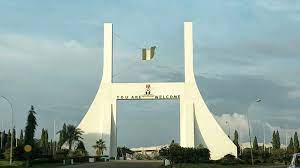Nigeria’s external debts, including short term debts, have remained low until the middle of the 1970s with $1.5bn in 1970, more than half of which was short term; and $2.5bn in 1975, of which $1.35bn represented short term debts. Nigeria’s debt situation began to get out of control in 1977 when an outstanding growth rate in the country’s debt became manifest. Nigeria’s outstanding debt tripled, reaching $7.5bn and $8.9bn in 1979 and 1980, respectively, with $3.55bn representing short term debts. Yet, the international financial community was not worried about this progression.
It should be noted that the Nigerian economy appeared to be taking off at the time, exhibiting a GNP growth rate of 9%. A record fiscal surplus of $10bn was obtained and about the same amount secured as external reserves. In the following years, Nigeria’s financial decline launched the nation’s authorities on the path of debt creditors.
Coming back to the over exagerated Nigeria’s external debt situation by wailers of all sorts, the country’s Minister of Finance, Budget and National Planning, Zainab Ahmed, had severally assured that ‘there is no cause for alarm’ in our situation that warrants the kind of pessimism some Nigerians, including former Vice President Atiku Abubakar, are raising, particularly on the Chinese loan put at $3.121bn as at March 2020. In his comments, Atiku Abubakar said that Nigeria ‘had mortgaged its sovereignty for China loan for rail projects in the country.’
Reacting to Atiku’s statement on the Chinese loan, Nigeria’s Debt Management Office, DMO, stated that the country’s debt from China stood at only 3.94% of its total public debt of $79.303bn while its external sources of funds and loans from China accounted for 11.28% of the external debt stock of $27.67bn as at March 31 this year. DMO added that all the Chinese loans are concessionary loans with interest rates of 2.5% per annum, tenor of 20 years and a moratorium of seven years.
It stated that the terms of the loans are compliant with provisions of section 41 (1a) of Fiscal Responsibility Act, 2007. In addition, it explained that the low interest rate reduces interest cost of government, while the long tenor enables the repayment of principal sum of the loans over many years. These two benefits, make the provisions for debt service in the annual budget lower than they would have ordinarily been if the loans were on commercial terms.
“What the loans would be used for include the $3.12bn for 11 Chinese projects tied loans some of which are Nigerian Railway modernization project, Idu-Kaduna section; Abuja light rail project; Nigeria’s four Airport terminals expansion project in Abuja, Kano, Lagos and Port Harcourt; Nigerian railway modernization project in Lagos-Ibadan section; and rehabilitation and upgrading of Abuja-Keffi- Makurdi road project.
As stated by the DMO, the impact of these loans is not only evident but visible. For instance, the Idu-Kaduna Rail line has become a major source of transportation between Abuja and Kaduna and revenue earner for the government. Reacting to the condemnation of the Chinese loans by wailers, Nigeria’s Minister of Transportation, Rotimi Amaechi, explained that the controversial guarantee clause in the loan deals is ‘standard irrespective of the country granting the loan’.
According to Amaechi, the clause waiving sovereignty in China’s loan agreement with Nigeria is only a contract term, a sovereign gurantee that assures payback according to the terms and conditions of any loan.’
Further explaining its side of the story, The Chinese Foreign Affairs Ministry denied that China had any clause in its loan contracts ceding Nigeria’s sovereignty to China. In the words of China, China gives full consideration to debt sustainability and seeks mutually acceptable proposals through equal and friendly consultations. It added: “that is the fundamental reason behind the enormous popularity of China-Africa cooperation in Africa.”
It is therefore not suprising that, according to the Buhari Media Organisation, BMO, “Nigerians have in recent days been fed with half truths and outright disinformation on the nation’s debt stock by a section of the political class and professional mischief makers”. It further asked: ‘is it not the PDP that was in power with Atiku as vice president when Nigeria took loans exceeding $2bn from China including the $470m spent on what Nigerians now describe as Abuja CCTV scam?’
A statement by the ruling All Progressives Congress, APC, Deputy National Publicity Secretary, Yekini Nabena, explained that the days of phoney contracts as institutionalised by successive PDP adminstrations in the country are fast fading. In his defence of the Chinese loans, a chieftain of the ruling APC, Chief Eze Chukwuemeka Eze, noted that the loan agreement was signed on December 20, 2010, under the presidency of Goodluck Jonathan of the then ruling PDP and that the present PMB administration only activated and implemented it for the good of Nigeria.
Records show that even the biggest economies of the world including the USA, UK, Germany, France, Japan, China, Italy, Canada and Netherlands among others are heavily involved in sovereign debts and rely on foreign loans to finance and maintain critical national projects. A google search shows that Nigeria is not even among Africa’s top five most indebted countries to China. The countries are Angola, $25 bn; Ethiopia, $13.5 bn; Zambia, $7.4 bn; Republic of Congo, $7.3 bn; and North Sudan, $6.4 billion. Nigeria’s current debt to China is only $3.1bn, just 10% of the country’s total external debt of $27.6bn.
Then why all the noise, distortion of facts and figures, etc.? For me i just see them as deliberate distractions to government from its various development projects. It is therefore not a mystery that the PMB administration is getting it right in the area of fiscal discipline, prudence, accountability and blocking of leakages.
Ilallah writes from Emeka Anyaoku Street, Maitama, Abuja via [email protected]



